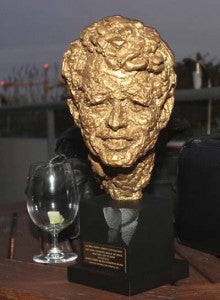A winter on the beach
Published 10:01 am Friday, October 4, 2013
The story goes that when Robert F. Kennedy was attorney general of the U.S., he took a group of journalists to the Mississippi Delta and asked them why they are not covering the poverty here, instead of what they were writing about in Washington, D.C.
 Years later, after RFK’s assassination, the journalists got back together and helped form an award for reporters who did cover those stories. The awards honor reporting on issues that reflect Kennedy’s concerns, including human rights, social justice and the power of individual action in the U.S. and around the world.
Years later, after RFK’s assassination, the journalists got back together and helped form an award for reporters who did cover those stories. The awards honor reporting on issues that reflect Kennedy’s concerns, including human rights, social justice and the power of individual action in the U.S. and around the world.
While I can’t confirm that story is true via the Internet, it’s what I heard in Washington D.C. last week when I made the trip to the Newseum for an award received by a group of University of Mississippi students, including myself. This was described to me as sort of the “Pulitzer for college journalism.”
It made me think about the experience, which was a couple of winters ago. My college newspaper’s advisor asked about a reporting experience she was offering, a trip to Belize, where we’d be reporting on a project our social work program had begun. A professor, Dr. Kim Shackelford, had vacationed there one winter, and discovered a community, just off from the beach hotels, living in terrible poverty.
The people who lived in a marsh walked on warped and cracked wooden “London bridges.” There was no electricity deep in that community. They didn’t have clean water. It was a lot like what you would see on an infomercial.
Dr. Shackelford decided to do something. She talked to the people, and figured out the best thing she could do was empower them to build a road through the community. A road would enable the city to get utilities back there, the children could get to school easier, and it would also make it easier to get clean water and medical attention.
Our task was basically to highlight this program. I didn’t know any of this at the time. I just knew that I was getting a scholarship to spend two weeks of early January on a beach where the temperatures ranged in the 80s all the time.
While there was plenty of time for relaxing by the beach, the project did end up meaning more to me than that. I was tasked with writing the main story, which was the history of the community, the situation with the road and where it might go from there. I had two weeks in Belize to report on this and other stories, and I probably spent a week writing it (Ah, college journalism).
This brings me back to the Newseum. Kerry Kennedy, one of RFK’s daughters, talked about speaking to a well-known journalist – who she didn’t name – who said when asked about reporting on poverty that those kind of stories were not fun.
No, it wasn’t fun to see people who had to bathe and wash their clothes outside from the same collected rainwater. It wasn’t fun to talk with them about the absolute poverty they lived in, knowing what I had back in the U.S., and also knowing that I couldn’t do anything to help except tell their story.
I didn’t expect an award or recognition. I just wanted to start up some conversation, and hope that people would be moved to help Dr. Shackelford and the community in some way.
While it was nice to get some recognition for the effort, the most important thing was knowing that a group of people with little more than each other, could be empowered to improve their situation by building a road, which was completed this past year.
CAIN MADDEN is the managing editor of The Tidewater News. He can be reached at 562-3187 or by email at cain.madden@tidewaternews.com

